Elegant, intelligent, and full of personality, the Siamese cat is one of the world’s most cherished breeds. Originating in Thailand, these blue-eyed beauties have long been admired for their sleek looks and lively, affectionate nature.
In this Nexus-pets guide, we’ll walk you through everything you need to know about Siamese cats—from prices and breed variations to tips on choosing the perfect companion for your home.
Siamese Cat Price: What to Expect to Pay
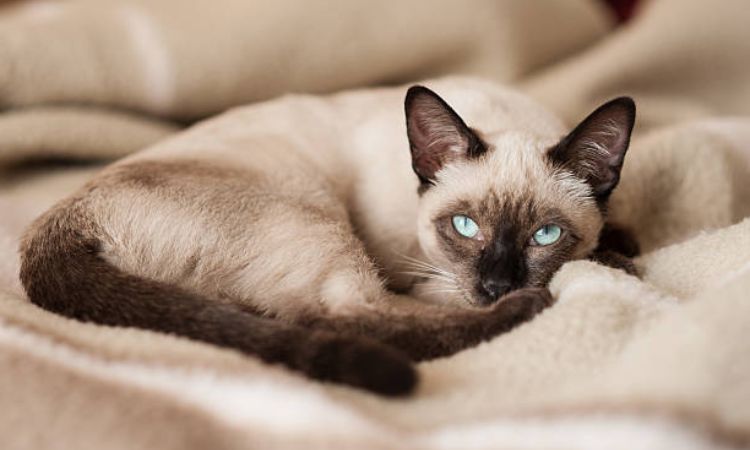
Buying from a Reputable Breeder
- Price range: Expect to pay between $600 and $1,500+ USD, depending on the cat’s lineage, quality, and the breeder’s reputation.
- Why prices vary:
- Pedigree and bloodline: Cats from fully pedigreed parents, especially show-quality lines, are more expensive.
- Show-quality vs. pet-quality: Show-quality Siamese are bred to meet strict breed standards in body type, color points, and head shape, making them pricier than pet-quality cats.
- Breeder reputation: Experienced and reputable breeders usually charge more, but you gain confidence in the cat’s health and history.
- Location: Cats in major cities or imported from abroad may include additional transportation or import fees.
- What the price usually includes:
- Core vaccinations and basic preventive care
- Spay/neuter if applicable
- Health guarantee for a certain period
- Veterinary check-up and documentation
Adopting a Siamese Cat
- Adoption fees: Typically range from $50 to $250 USD, much lower than buying from a breeder.
- Where to find them:
- Local shelters or rescue organizations
- Breed-specific rescues dedicated to Siamese cats or other color-point breeds
- Benefits of adopting:
- Lower initial cost compared to buying from a breeder
- Saving a cat’s life and giving it a loving home
- Many cats come pre-spayed/neutered and vaccinated
Initial Costs to Prepare For
- Litter box and litter
- Food and water bowls
- Scratching posts or pads, and interactive toys
- Puzzle feeders or enrichment toys to keep your cat mentally stimulated
- Initial vet visit for a comprehensive health check
Ongoing Costs
- Regular high-quality cat food and fresh water
- Litter replacement and cleaning supplies
- Routine veterinary check-ups, vaccinations, and dental care
- Parasite prevention (flea, tick, and worm treatments)
- Grooming supplies such as brushes and cleaning wipes for eyes and ears
- Potential costs for illness or special veterinary care
Note: Siamese cats are highly social and active. Beyond financial investment, you will need to dedicate time for play, training, and bonding. A well-cared-for Siamese is a lively, affectionate companion who thrives on attention and interaction.
Exploring the Different Types of Siamese Cats
The Four Main Types of Siamese Cats (Breeds)
Siamese cats are traditionally divided into four main types based on body structure, facial shape, and overall appearance:
1. Traditional (Applehead) Siamese
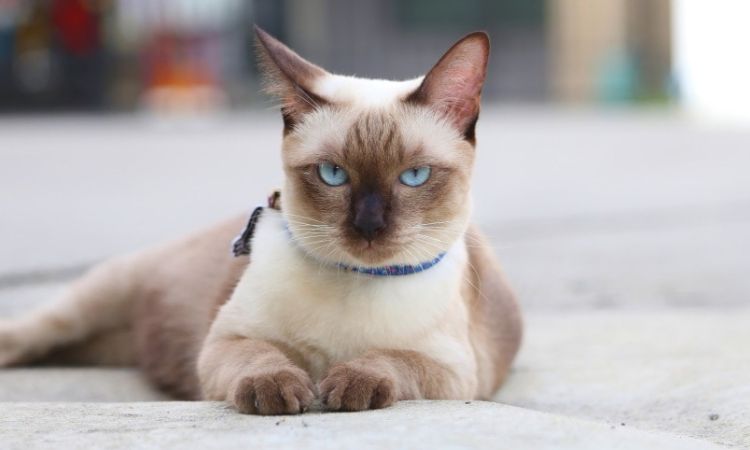
- Appearance: Stocky body, round “apple-shaped” head, smaller ears, and a slightly downward-pointing nose
- Personality: Friendly, affectionate, and highly sociable; loves to sit on laps and engage with family
- Other Notes: Short coat that requires minimal grooming; can over-groom due to stress, occasionally causing bald spots
2. Classic Siamese
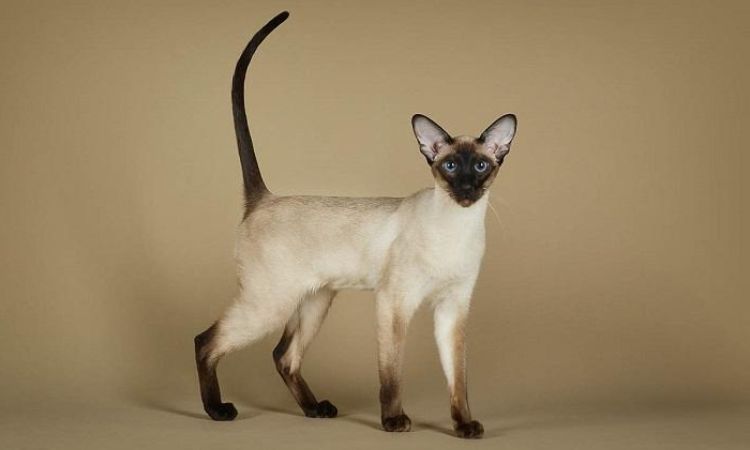
- Appearance: Tall and athletic, long sleek body, slightly larger ears than Applehead, pointed face with slightly upturned nose
- Personality: Energetic, playful, and affectionate; demands attention and enjoys interacting with owners
- Other Notes: Can be prone to ear infections and obsessive grooming, similar to other traditional types
3. Modern (Wedgehead) Siamese
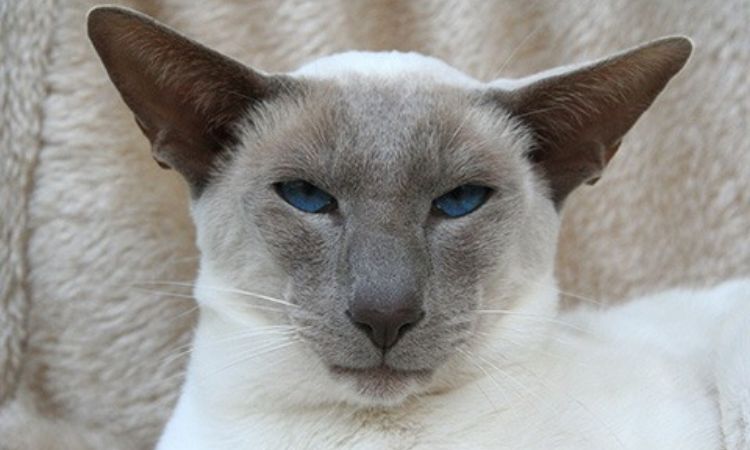
- Appearance: Very long, slender, and athletic body; narrow wedge-shaped head; large, wide-set ears; slanted almond-shaped eyes
- Personality: Intelligent, social, and highly interactive; enjoys playtime and human companionship
- Other Notes: Popular as show cats; some may have genetic predispositions to liver, heart, or kidney conditions due to selective breeding
4. Old-Style Siamese
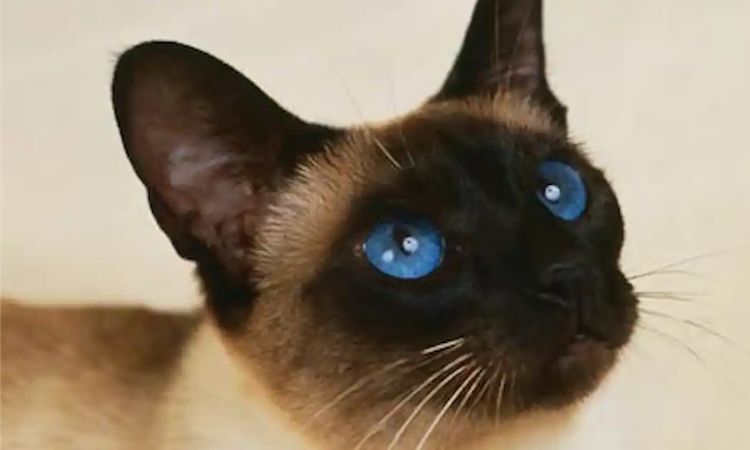
- Appearance: Medium-sized, lankier than Applehead, larger ears, longer face, nose pointing straight ahead
- Personality: Attached to their owners, curious, and follows people around; less vocal than Applehead but still expressive
- Other Notes: A balance between the traditional and classic Siamese, combining friendliness with moderate athleticism
The Four Common Color Points
Siamese cats are most known for their color-point fur, where the body is lighter and the extremities—face, ears, paws, and tail—are darker. The four main color points include:
1. Seal Point
- Cream-colored body with dark brown or almost black points
- The most traditional and widely recognized Siamese color
2. Blue Point
- Bluish-white body with grayish-blue points on face, ears, paws, and tail
- Offers a softer, elegant contrast with striking blue eyes
3. Chocolate Point
- Cream or ivory-colored body with chocolate brown points
- Rich, warm tones that are highly prized among Siamese enthusiasts
4. Lilac Point
- Pale, almost white body with soft grayish-pink points and a pink nose
- One of the rarest and most sought-after colorations
Other Siamese Variants and Related Breeds
Beyond the main types and color points, Siamese cats also appear in other variants:
- Additional Color Points: Red Point, Cream Point, lynx/tabby points, tortoiseshell variations
- Related Breeds:
- Balinese: Long-haired Siamese
- Oriental Shorthair: Siamese-like body with diverse coat colors
- Colourpoint Shorthair: Siamese body with non-traditional point colors
- Himalayan: Cross between Siamese and Persian for long-haired pointed cats
- Tonkinese: Cross between Siamese and Burmese, producing “mink” patterns
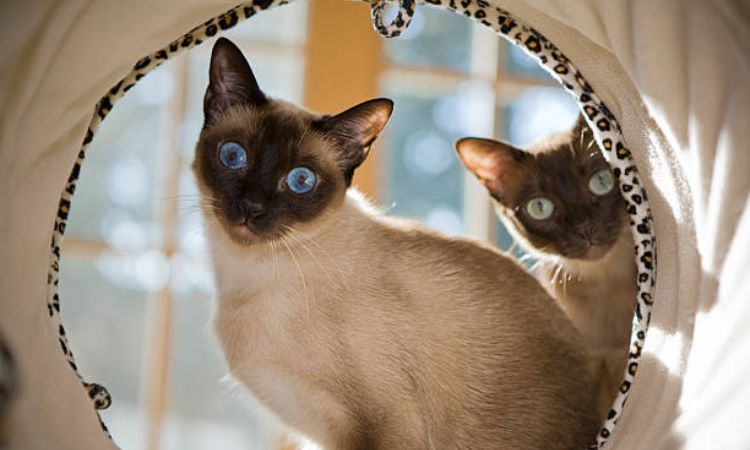
How to Find and Choose the Perfect Siamese Cat
Finding the right Siamese cat requires careful research, planning, and understanding of the breed. Whether you’re buying from a breeder or adopting from a shelter, knowing what to look for ensures that your new feline companion is healthy, well-socialized, and a perfect match for your home.
1. Finding a Reputable Breeder
Purchasing a Siamese cat from a reputable breeder can help ensure the health, temperament, and overall quality of your kitten. Here’s what to keep in mind:
Signs of a Good Breeder
- Clean and Safe Environment: The breeding facility should be tidy, well-maintained, and free from overcrowding. Healthy kittens are usually raised in a stress-free environment.
- Health Guarantees: A responsible breeder provides health certificates, vaccinations, and spay/neuter agreements when applicable.
- References: They should be willing to provide references from previous buyers or veterinary professionals.
- Engagement: Good breeders ask questions about your home, lifestyle, and experience to ensure their kittens go to a suitable environment.
Questions to Ask a Breeder
- What is the health history of the parents?
- How are the kittens socialized? Are they exposed to humans, other pets, and everyday household sounds?
- What veterinary care has the kitten received so far?
- Are there any known genetic issues in the lineage?
2. Finding a Siamese Cat to Adopt
Adopting a Siamese cat can be a rewarding alternative to purchasing from a breeder, often saving a life while providing a loving home.
Tips for Searching for Siamese Cats
- Check local animal shelters and rescue organizations that specialize in Siamese or Oriental breeds.
- Use reputable online adoption platforms but ensure the organization is verified.
- Attend cat adoption events where breeders or rescues bring in Siamese cats for potential homes.
What to Look for in a Rescue Cat
- Personality: Observe if the cat is curious, affectionate, and interactive, traits typical of Siamese cats.
- Health: Look for clear eyes, clean ears, shiny coat, and good overall condition. Ask for any available medical records.
- Adaptability: Consider how the cat responds to new people or environments—this can indicate how well they may adjust to your home.
3. Red Flags to Watch Out For
Being cautious is crucial when selecting a Siamese kitten. Avoid situations that may indicate unethical or unsafe practices.
- Online-Only Breeders or “Kitten Mills”: Avoid sellers who only communicate online and refuse in-person visits. These operations often prioritize profit over animal welfare.
- No Health Records or Guarantees: Reputable breeders provide proof of vaccinations, vet checks, and sometimes health guarantees.
- Inaccessible Living Environment or Parents: You should be able to see where the kitten was raised and meet at least one parent. Refusal to allow this is a warning sign.
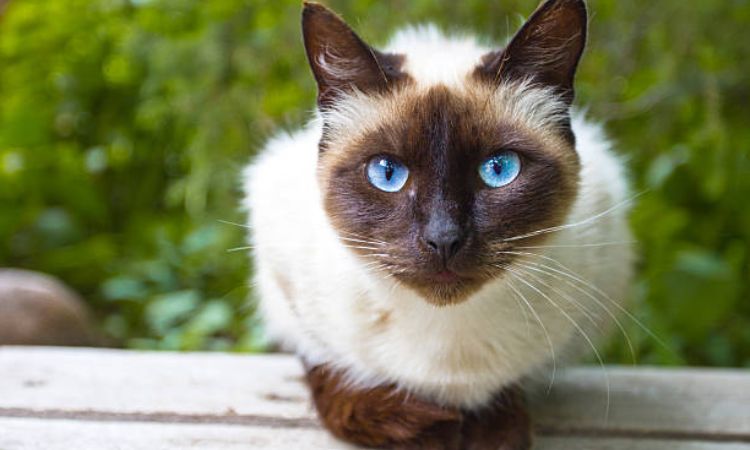
Caring for Your Siamese Companion
Siamese cats are not just beautiful—they are intelligent, affectionate, and highly interactive pets. Caring for them requires attention to their unique personality, health, and grooming needs.
Personality and Social Needs
Siamese cats are often described as having a “dog-like” personality due to their strong attachment to humans and eagerness to interact. Key aspects of their personality include:
- Affectionate and Loyal: Siamese cats thrive on human companionship, often following their owners from room to room and seeking cuddles. They form deep bonds with their primary caregiver and enjoy being included in daily activities.
- Highly Social and Intelligent: These cats need regular mental stimulation. Interactive toys, puzzle feeders, and playtime are essential to keep them engaged and prevent boredom-related mischief.
- Vocal Communicators: One of the most famous traits of Siamese cats is their “voice.” They are highly expressive and will chirp, trill, or meow to communicate their needs, express curiosity, or simply demand attention.
Because of their social nature, Siamese cats do best in households where they receive plenty of interaction and companionship. They may not enjoy being left alone for long periods.
Health and Wellness
Siamese cats are generally healthy but are predisposed to some breed-specific conditions. Responsible owners should be aware of:
- Common Health Concerns:
- Progressive Retinal Atrophy (PRA): A genetic condition that can lead to gradual vision loss.
- Amyloidosis: A disorder where abnormal protein deposits can affect organs like the liver or kidneys.
- Asthma and Respiratory Issues: Some Siamese cats may develop breathing difficulties, requiring veterinary management.
- Diet and Nutrition: Provide a high-quality, balanced diet suitable for their age and activity level. Multiple small meals a day mimic natural hunting behavior and help prevent overeating. Avoid free-feeding, as Siamese cats tend to overeat.
- Exercise: Siamese cats are energetic and require daily physical activity. Use interactive play sessions, climbing trees, and toys to keep them active and mentally stimulated.
Routine veterinary care, vaccinations, and preventive screenings are crucial to ensure a long, healthy life, which can often exceed 15 years.
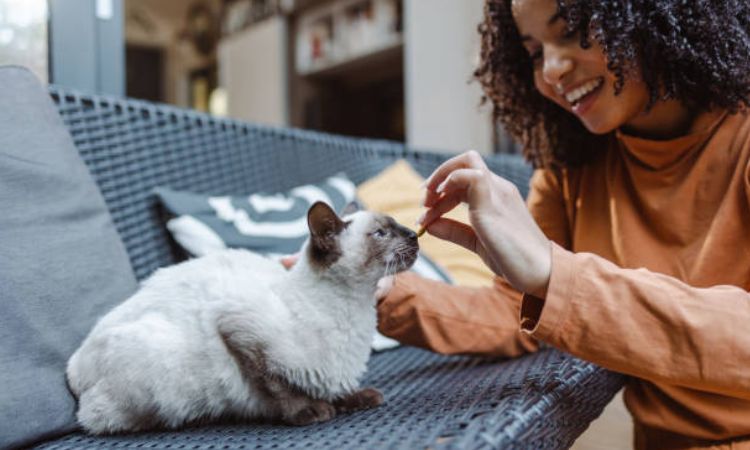
Grooming and Maintenance
The Siamese coat is short and smooth, making grooming relatively simple:
- Brushing: Weekly brushing is sufficient to remove loose hairs and maintain a healthy shine. Their short coat rarely matts or tangles.
- Bathing: Only necessary in rare cases or if the cat becomes particularly dirty. Siamese cats typically groom themselves effectively.
- Eye and Ear Care: Monitor for signs of irritation, redness, discharge, or infection. Consult a veterinarian if any abnormalities appear.
Unlike long-haired breeds, Siamese cats require minimal grooming, making them ideal for owners who prefer low-maintenance maintenance routines while still enjoying a sleek, elegant companion.
In essence, a Siamese cat’s vibrant personality, paired with their social and health needs, makes for a rewarding companionship. By providing them with proper care, mental stimulation, and affection, you’ll not only ensure a healthy life for your feline friend but also foster a deep bond with a truly unique pet.






